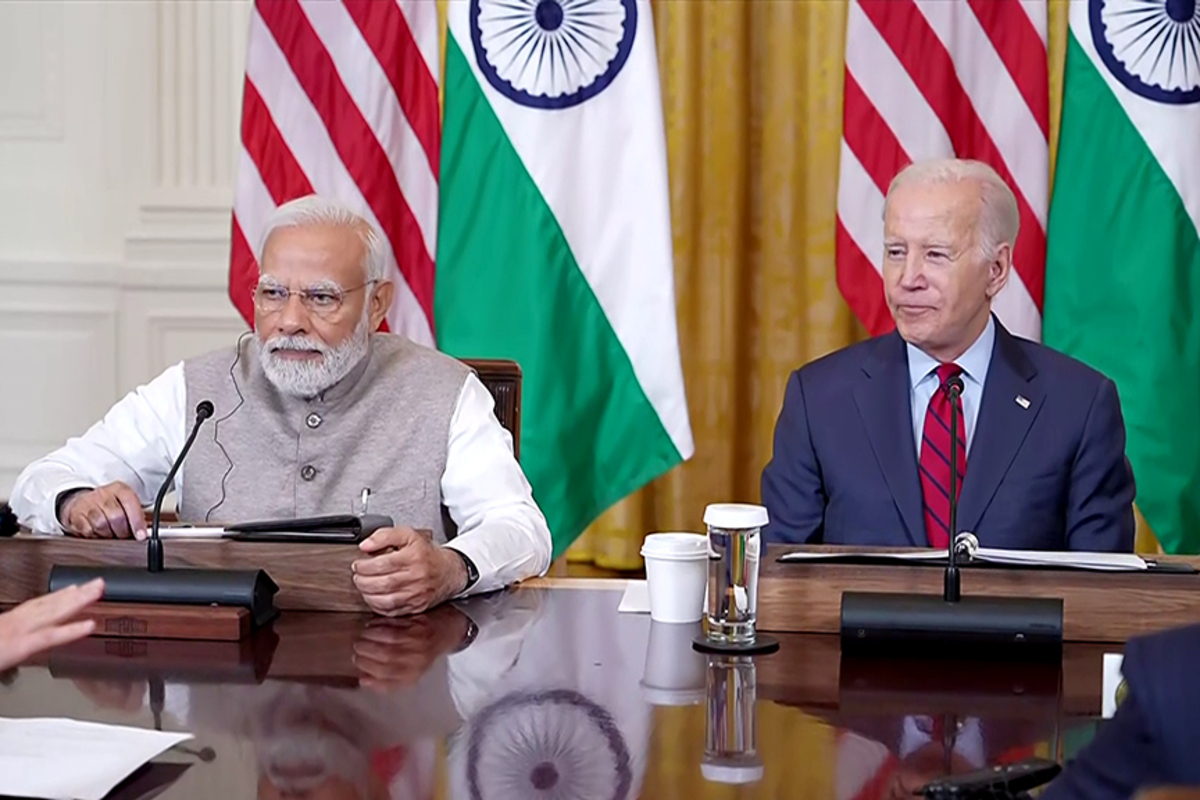Jet Dilemma
India’s fighter jet procurement strategy is at a crossroads, caught between immediate operational needs and long-term self-reliance goals.
The recently signed Memorandum of Understanding (MOU) between India and the US on critical battery minerals is a pivotal step toward strengthening the two nations’ collaboration in the clean energy sector.

Prime Minister Narendra Modi and United States President Joe Biden (ANI Photo)
The recently signed Memorandum of Understanding (MOU) between India and the US on critical battery minerals is a pivotal step toward strengthening the two nations’ collaboration in the clean energy sector. The agreement formalized by Union Commerce Minister Piyush Goyal and US Commerce Secretary Gina Raimondo signals a growing alignment between the two countries in their quest for sustainable energy solutions.
This partnership is more than just a bilateral agreement ~ it is a strategic move to reduce dependence on dominant global players like China in the supply of crucial minerals such as lithium, cobalt, and nickel. India’s focus on securing the supply chain for critical minerals is timely. As the world transitions toward greener technologies, the demand for these minerals has surged. Lithium, in particular, is indispensable for electric vehicle (EV) batteries and renewable energy storage systems. However, the global supply chain is vulnerable, heavily concentrated in a few countries.
Advertisement
For India, which is pushing ahead with its ambitious targets for EV adoption and clean energy, ensuring access to a steady supply of these minerals is crucial. The US, similarly seeking to fortify its own supply chains, has recognised India as a strategic partner in this endeavour. The MOU represents an important step forward, but it also highlights the broader context of geopolitical realignments. China currently dominates the critical minerals market, both in terms of extraction and processing, and has used its dominance as a form of economic leverage. For countries like India and the US, diversifying supply sources and strengthening collaboration on the processing and recycling of these minerals is not just an economic necessity but also a geopolitical one.
Advertisement
This partnership aims to reduce reliance on any single source, thereby enhancing energy security for both nations. One of the most significant aspects of the MOU is the emphasis on the commercial development of critical minerals in collaboration with third countries, particularly in Africa and Latin America. These regions are rich in natural resources but often lack the infrastructure or technical capabilities for large-scale extraction and processing. By working together and including these countries in their supply chains, India and the US could not only secure their own energy futures but also support the sustainable development of these mineral-rich regions.
Despite these positive developments, the MOU stops short of a comprehensive trade deal. While Japan has secured such an agreement with the US, allowing Japanese automakers to benefit from the US electric vehicle tax credit, India has yet to reach a similar milestone. However, this should not be viewed as a limitation of the current agreement. Rather, it opens the door for future negotiations that could potentially offer Indian companies more significant benefits and market access in the US. This partnership will also play a vital role in securing the resources needed for India’s transition to green energy.
Advertisement